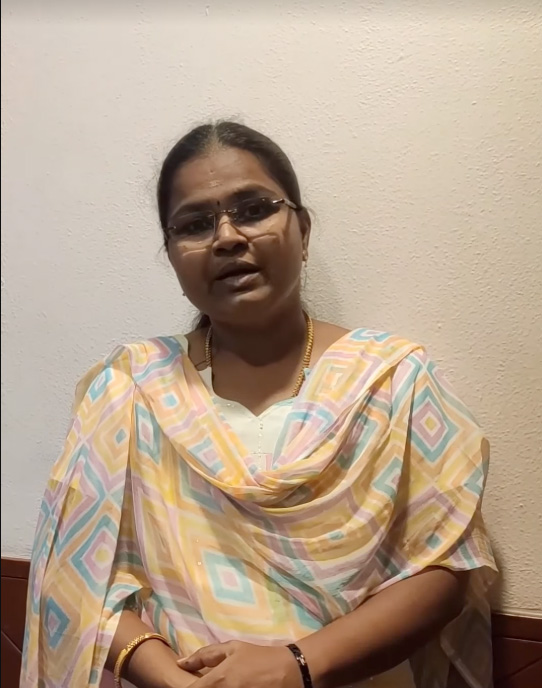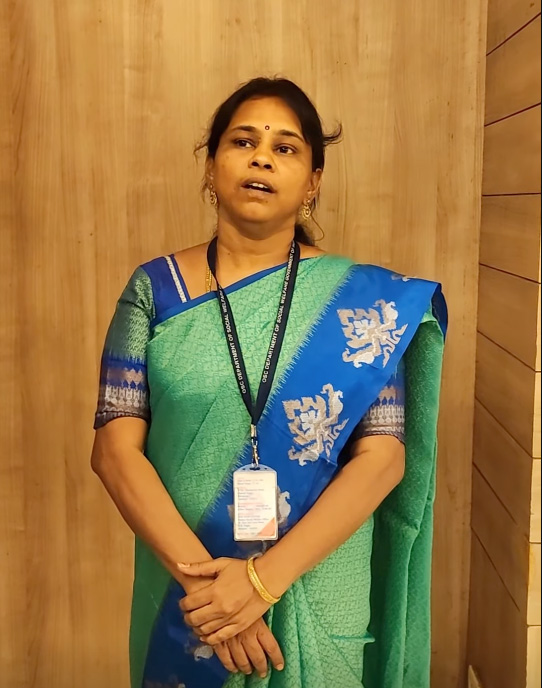
Strengthening Response and Service Provisioning for Gender-Based Violence in Tamil Nadu
When & Where
Four consultation meetings were held in Chennai, Coimbatore, Madurai and Trichy with representatives from various service providers from all districts of the state.
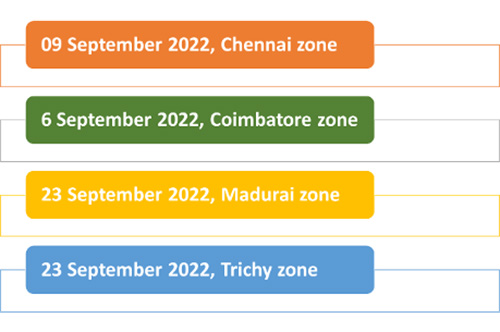
Attendees
There were 191 participants across the four consultation meetings including counsellors, administrators and field staff from one stop centers, civil society organisations, family counselling centres and protection officers from all districts of Tamil Nadu.
Why the need?
The service ecosystem in TamilNadu comprises many state and non state actors but coordinated working has been a challenge and various agencies often work in silos on the same issue. The onset of the covid-19 pandemic has also led to several challenges on ground in terms of service delivery and the spike in cases during and after covid has brought the lacunae in service coordination to stark relief. Bringing stakeholders together helps establish channels of communication and paves the way for a more integrated approach to tackling gender-based violence response. To this end, through these consultative meetings, PCVC is seeking to produce knowledge products including a directory of services in Tamil Nadu and psycho-social handbook outlining good practices and recommendations for more effective service delivery.
The Process
The multi stakeholder consultation meeting was interactive and activity-based. It was conducted to identify and map existing services for survivors of gender-based violence in TamilNadu and understand and distinguish various perspectives to service provision that is currently being employed. Discussions were held on the target groups and geographies of various stakeholders, coordinated service models, existing training and self-care needs, recommendations for more effective delivery of services etc. These consultations served to bring together service providers across the state to network with one another, share good practices and challenges and collectively brainstorm on the way forward.
The Outcomes
Participants reflected on the importance of a collaborative approach, demand for greater support from law enforcement officers and the judiciary, need for more sustainable resource allocation and several other important facets to responding on ground. Many important recommendations emerged on building a holistic response to gender-based violence.
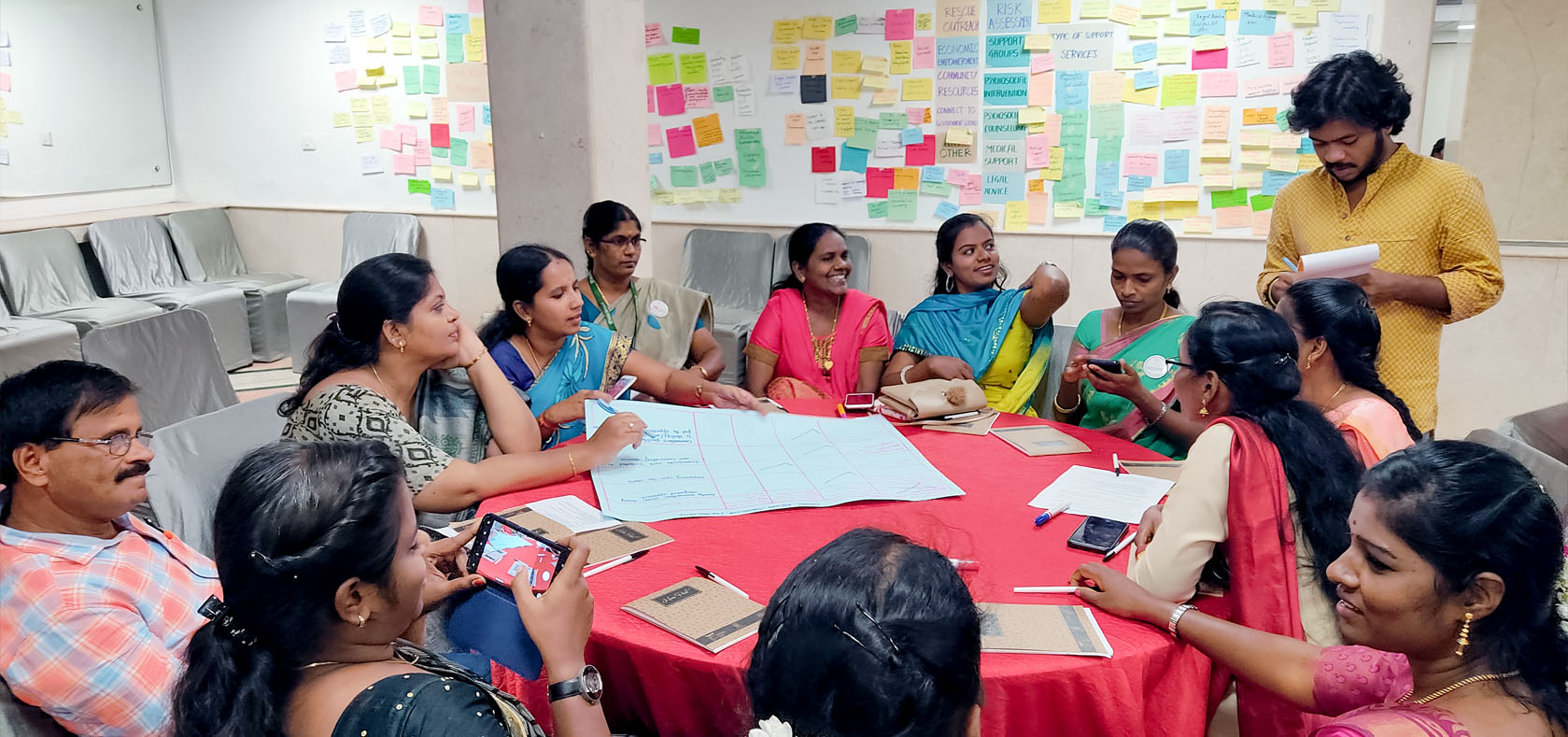
Chennai Zone Insights
“Clients often have difficulties in coping with the impact of the trauma that they are grappling with and we as a family counsellor support them through that process.”
—Family Counsellor
“Facilitating greater access to working womens hostels helps clients in exploring work opportunities and gives a sense of security and independence.”
—CSO
“Cyber crime against women has increased in recent times and counsellors need some new techniques and training to handle such situations.”
—Family Counsellor
“The police department should cooperate more in filing zero FIR while reporting cases under DV Act of 2005.”
—Protection Officer
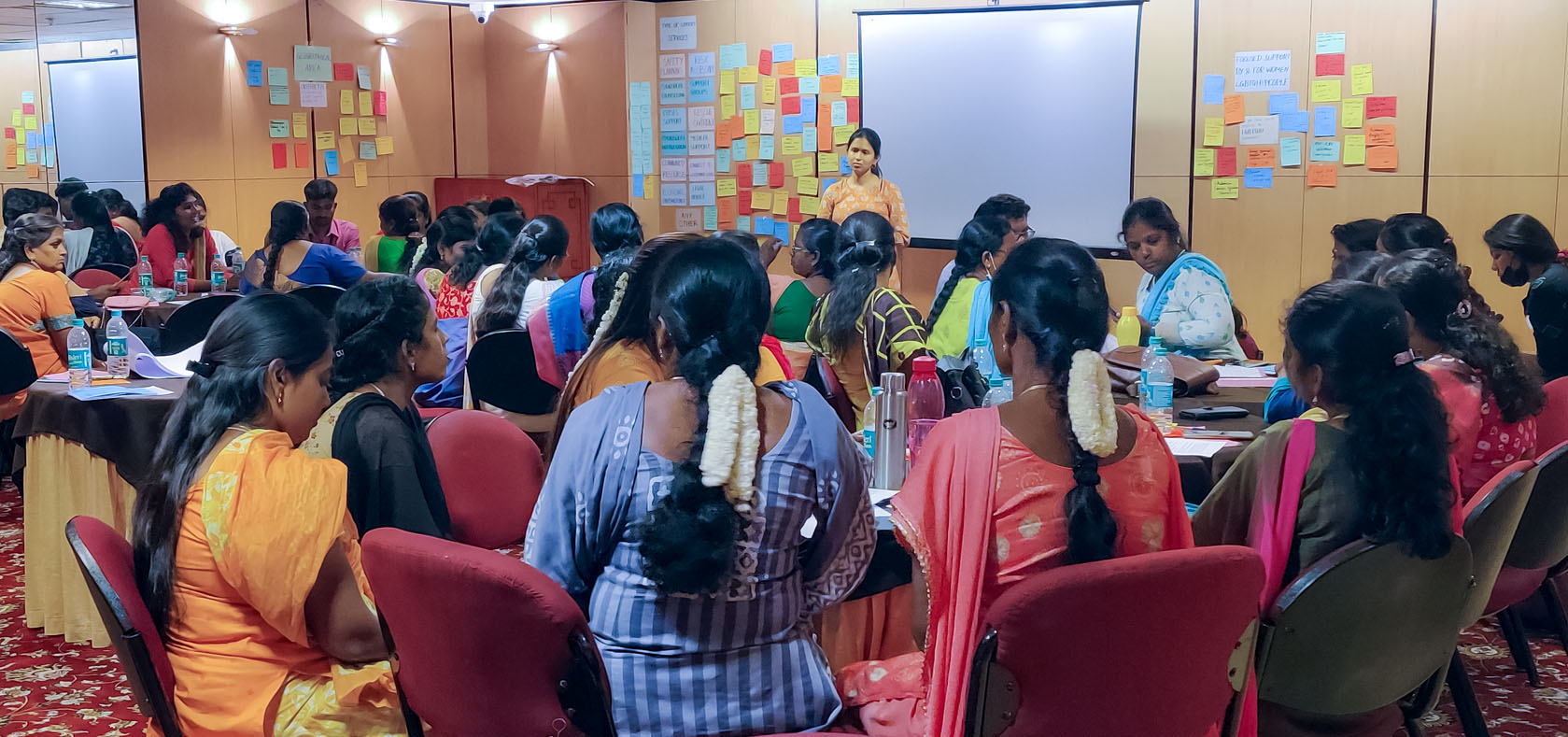
Coimbatore Insights
“We need more sensitisation on gender identity and sexuality and issues faced by LGBTQIA+ Community to provide better support services for them and better coordination from the police department during such crisis situations.”
—One Stop Centre
“Self-care schemes has to be introduced for all the employees for them to take support while dealing with the enormous work stress and experiencing burnout given the kind of cases we deal with.”
—One Stop Centre
“Protection officers can be placed at one stop centres - it would create better coordination in handling cases.”
—Protection Officer
“Travel allowance to be provided to attend trainings and court visits and maternity benefits has to provided to all the employees.”
—Protection Officer
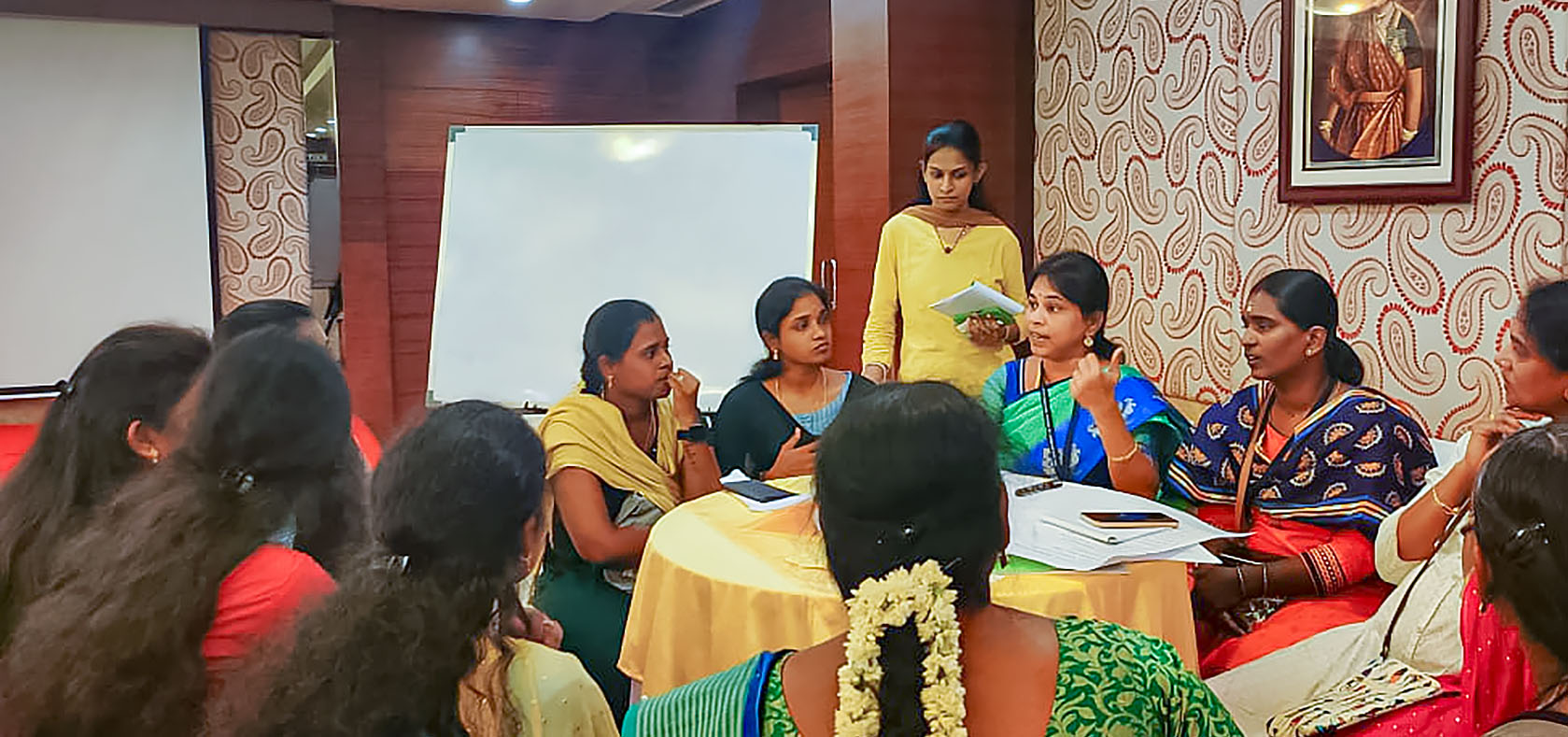
Madurai Zone insights
“The purpose of counselling needs to be clarified - forcibly calling someone for counselling often belies its very purpose. Hard to follow client-centric approaches when the mandate is to summon individuals to be a part of the process.”
—Family Counsellord
“While trying to stop child marriage from happening, we face threats of physical and verbal harm and we need more protection from police department during such situations.”
—Family Counsellor
“Documenting and reporting cases to the family court is difficult since various authorities request multiple variations of same report and the paperwork occupies lots of space and we don't even have necessary space for storage.”
—Protection Officer
“FCC should have a separate help line number to reach more people who are in need of counselling services”
—Family Counsellor
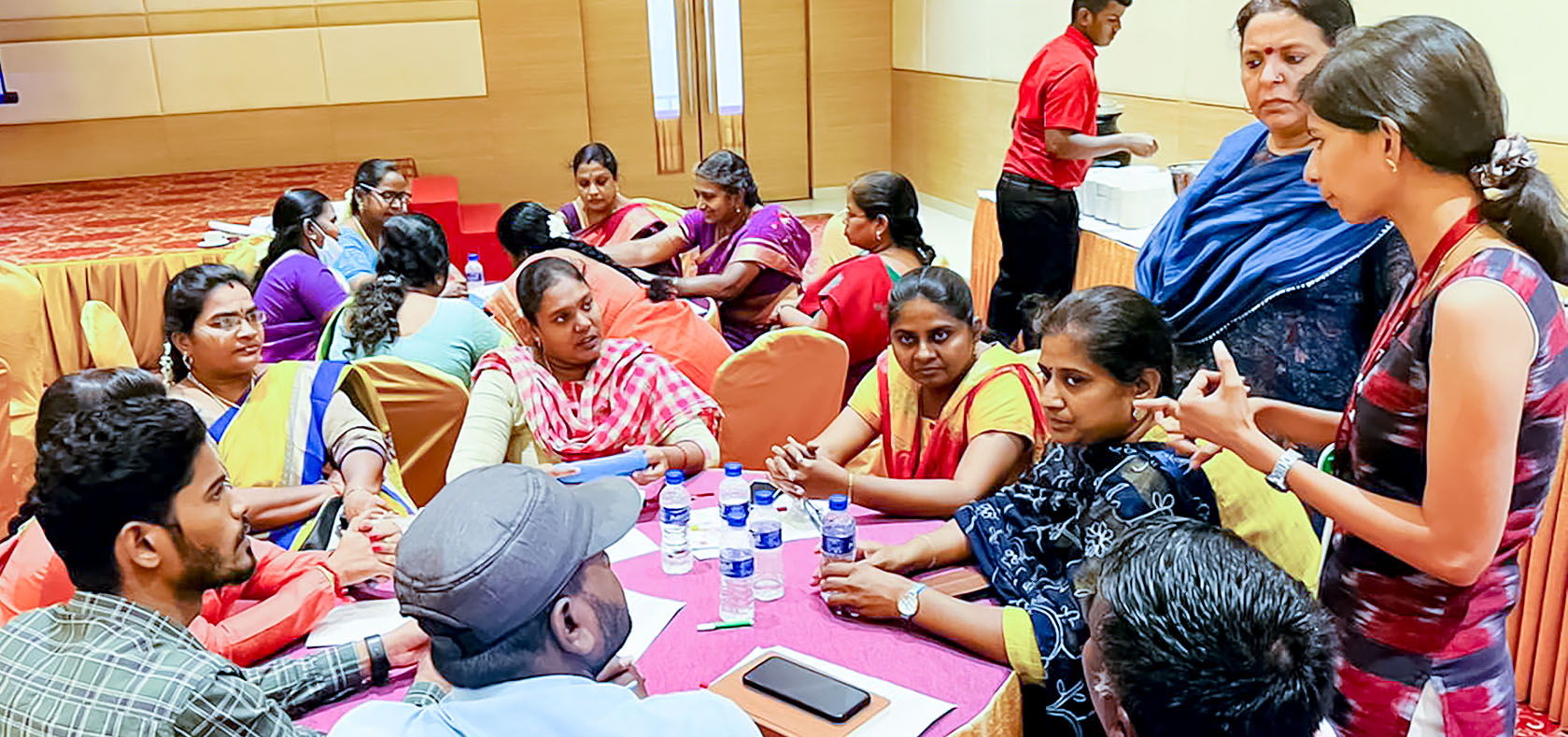
Trichy Zone Insights
“Each one stop centre should be equipped with a vehicle to support rescue missions”
—One Stop centre
“Emergency cases when referred at midnight cannot be handled by the FCC alone. If we work collaboratively with NGOs, the case can be handled in a better and more effective manner”
—Family Counsellor
“Several Assistant public prosecutors must be appointed at district courts for smooth dealing of cases and for the fast delivery of services to the beneficiaries”
—Protection Officer
